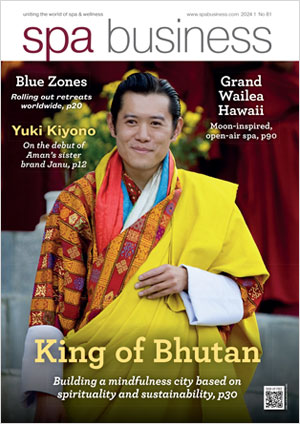While the common cold is a mild illness, it costs society billions every year – especially in terms of lack of workplace productivity due to days off sick.
Previous scientific studies have highlighted the fact that people who workout more or have low stress levels aren’t as likely to get ill. But now research published by the Annals of Family Medicine in July* has also suggested that positive thinking – via mindfulness meditation – as well as exercise leads to less severe symptoms of acute respiratory illnesses (ARI), such as colds and influenza, or may even prevent them altogether.
A mindful study
Dr Bruce Barrett, an associate professor at the University of Wisconsin-Madison, and colleagues randomly assigned 149 participants aged 50 years and over to three groups.
One group took part in an eight-week meditation programme of two-and-a-half hour group sessions a week and 45-minutes of at-home practice on a daily basis. The programme was based on mindfulness meditation which works on the idea that an increased awareness of your own body, thoughts and emotions may lead to a healthier mind-body response to stress.
The second group underwent a matching eight-week exercise programme of one two-and-a-half-hour group session a week and 45 minutes of physical activity a day. The exercise was of moderate intensity and mostly consisted of stationary bike, treadmill and equipment workouts in the group sessions, and brisk walking or jogging at home.
The third group was simply included for control purposes.
The researchers then observed participants from September to May – considered the US cold and influenza season. Via bi-weekly calls, they kept track of when people reported having a cold/flu, the severity of symptoms, the number of days missed off work and the number of visits to a doctor.
Healthy results
During observation, 40 bouts of ARI were reported in the control group, compared to only 27 cases in those who had meditated and 26 in the exercise group.
Meditators also reported less severe symptoms. The symptoms were measured using the Wisconsin Upper Respiratory Symptom Survey which rates 24 ailments – from a runny nose, sneezing and sore throat to headache/congestion, body ache and fever – on a scale of 0–7 for severity. The symptoms weren’t singled out, but overall the average score in the meditation group was only 144, compared to 248 for exercise participants and 358 in the control group.
People in the exercise and meditation groups felt sick for five days on average, while those in the control group felt sick for an average of nine days.
“I suspect this is because they [the meditators] are better able to cope with the symptoms,” independent mindfulness researcher James Carmody told Reuters press agency. “[With mindfulness] people learn to redirect their attention so they don’t stay stuck on unpleasant thoughts.”
Notably, people in the meditation and exercise groups also took less ARI-related sick days from work during the study. Meditators missed 16 days of work due to ARI in total; while those who exercised took 32 days off work for ARI. In contrast, people in the control group took 67 days off work.
There wasn’t much difference in the number of times people visited the doctor because of ARI.
*Barrett, Bruce et al. Meditation or Exercise for Preventing Acute Respiratory Infection: A Randomized Controlled Trial, The Annals of Family Medicine, July/August 2012

